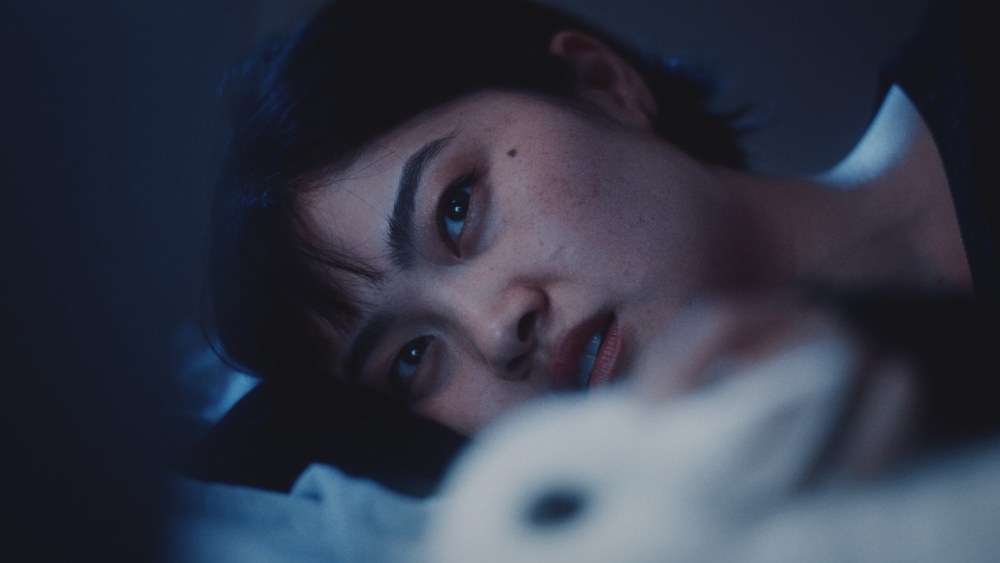In The Feather Factor, Benedict Cumberbatch plays a London graphic novel creator who suddenly finds himself a widower (his beloved spouse slumped dead on the kitchen floor). In early scenes, we see him trying to maintain a sense of normalcy while preparing breakfast for his two young sons. However it didn't happen. He seemed to be juggling four responsibilities without delay; he burned the bread and then frantically tried to scrape off the burnt half (a mistake).
The character's name is rarely mentioned (he's referred to as “Dad” in the closing credits), but the depth of his grief is already evident as he sits on the couch after the funeral, tears welling up slowly. When Benedict Cumberbatch plays a second role like this, you might guess you're not just seeing an actor cry; You see it show in every tear he sheds. In just a few minutes, Cumberbatch conveys the depth of the father's pain, and the terrifying chasm within it.
Yet that scene in the early morning kitchen captures a special aspect of grief. It reminded me of the scene in “Kramer vs. Kramer” where Dustin Hoffman as a recently separated father, now alone with his son, tries to bond together by making breakfast, It turned out to be a minor disaster. Part of the thing about “Kramer vs. Kramer” is that it understands, better than other divorce movies, that one of the many pains of a wedding ending is that you have to unexpectedly shoulder everything you rely on your partner to do. . It's not just a logistical loss; however, that's certainly part of it. On one level in The Feather Factor, Cumberbatch said he relied on his spouse for every part. I've been hoping for a while that this movie would dramatize, with heartbreaking intimacy, just how insanely overwhelming the life of a widower like this can be – emotionally, mentally, virtually.
What I'm not relying on is the feathering issue. It begins as a hen—a crow, to be exact—and it imposes itself on the viewer with close-ups of its beak and wings, like a scene from a horror movie. This is wise in the sense that the sudden absence of a partner may evoke a primal sense of fear. But in “The Feather Factor,” we're somewhat shocked to see this expressed through randomly staged soaring scares. Why is this crow circling?
Indeed, it is greater than the crow. this is a Features ——Or the precursor of 1. As Cumberbatch and his two sons (who also remain unnamed) (of course, this is that type of movie) are battling this intrusive, squawking, wing-dragging feathered enemy, there's a more A terrifying threat abounds: an eight-foot-tall crow, commonly known as…crowActor David Thewlis speaks in a British ominous voice as if he were Romney Marsh's Scarecrow, playing a similar role to Edgar Allen Poe's Raven crosses over and says “Never again!” and he'll say “Good morning, British widower! We slept in effectively, didn't we?” At first, he seems to be out to harass and intimidate Cumberbatch, or maybe It's to show his fear.
He is certainly a projection: the pain and alienation that Cumberbatch felt. For Cumberbatch, who is stuck in a mire of pain, he is using art as his escape. Sitting in his home studio, he uses black ink to draw a delicate shot (a crow) that looks like it stepped out of a gothic nightmare. They will be illustrations for his new graphic novel. So was he dreaming all this? Maybe, but Raven actually kind of There: A large, menacing hen that walks into the room and interacts with Cumberbatch, becoming his supernatural playmate, thinker, and stern therapist. This demon hen may look scary, but it can heal you.
There's something about Tony pretending to be related. A Wikipedia entry tells me that Crow “is the Crow from Ted Hughes' 1970 poetry e-book.” Effectively! Still, it looks like something out of a big horror movie. The Father Factor is a film about overcoming grief that falls into a murky world between psychological drama and “dark” fantasy. The film, written and directed by Dylan Southern, is largely based on Max Porter's 2015 novella Grief is the Issues with Feathers , the film has something of a personal ambition to it, and it shows this visually, with the almost square aspect ratio and the bright gloominess of the pictures. However, the whole thing is depressing and, in a strange way, not very compelling.
The Crow never becomes a gripping character; he sums up too harshly, intimidates too much, looks too hard for the visible impact of the characterization. His great teaching, while unimpeachable, is not entirely the content of revelation. It seems clear that the film wants to convey a message about the difference between sadness and despair. It shows that sadness is sweet while despair is not. Anyone who has suffered tragedy must grieve, face and process it – however, there is a difference between being truly sad and dwelling on the pain. Maybe easier said than acted, but for a drama about grief, it feels like something out of Mental Health 101.
In fact, Cumberbatch would have had to go too far – fall into obsession – or there would be no movie. He wanted to drink whiskey like a skunk at midnight and get drunk like a madman. The actor appears trustworthy in many moments, but he has no one to play him with. The film fails to characterize the two boys (who are played by lookalike brothers Richard Boxall and Henry Boxall) to the point of barely distinguishing them. This relationship should be central as father and sons negotiate a new life and try to escape the clutches of the demon of despair. Instead, we find a lonely character locked within a ritualized interface with his ominous feathered friend. This seems like a pretty stupid idea.

